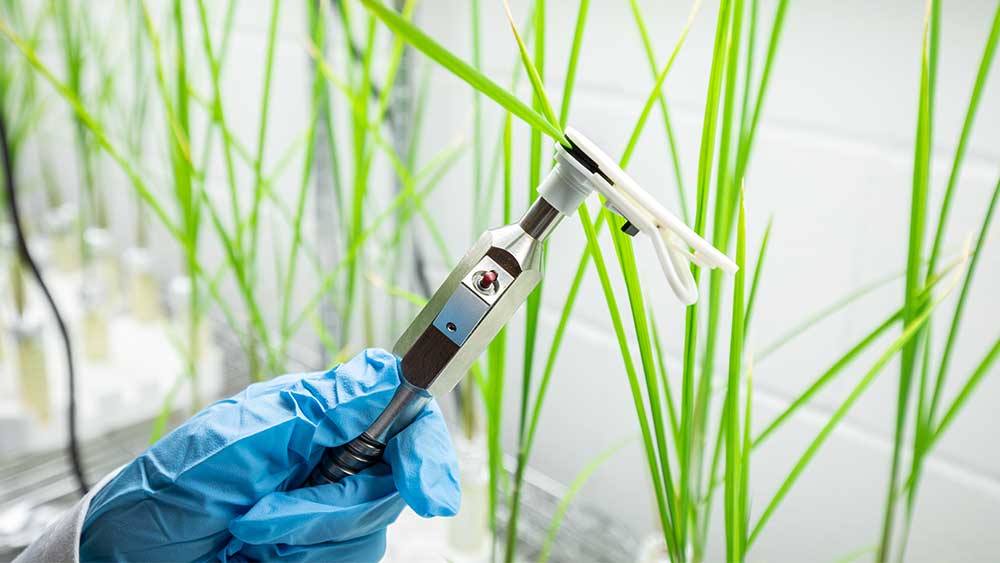
What is the Agriculture and Food Industry?
Engineers in the food industry make advances in improving the quality and preservation of our food and reducing hunger. Engineers in the agricultural industry use technology such as robotics, sensors, computer models and satellites to make a cleaner, more sustainable environment. They maintain plentiful, clean water, and make healthier and safer foods.
Majors That Could Lead to Agriculture and Food Careers
Students interested in agriculture and food careers could start their career paths through several majors offered by the Texas A&M University College of Engineering.
Please see the list below for some of our majors that could lead to an agriculture and food career.
- Biological and agricultural engineering: Biological and agricultural engineers address the food chain from farm to table. Agricultural engineers design and produce farm machinery and systems that efficiently increase crop yields while preserving the environment by conserving water, nutrients and pesticides. Food engineers create the processes needed to preserve, store and transport perishable food products.
- Chemical engineering: Chemical engineers in the food industry tend to work in the agriculture or manufacturing sectors. Those working in agriculture may study the genetic modification of fruits and vegetables or look for ways to increase yields and make them more desirable and thus more profitable. Work in the agriculture industry also includes researching methods of making agriculture more environmentally friendly, finding new ways of processing waste and conserving soil and water. Chemical engineers working in manufacturing try to improve or develop new products and optimize the manufacturing process to increase profits.
- Computer engineering: Computer engineers work in the field of smart agriculture. The food distribution industry relies on computing professionals to create hardware and software for plant genetics, harvest detection, weed and crop disease detection, pathogen sensors, post-harvest processing and database management. Farmers also need drones to photograph fields from above and sensor networks for irrigation, detection and monitoring.
- Computer science: Large-scale food production and distribution heavily rely on computer specialists. Crop development uses sophisticated software to analyze plant genetics, and farmers use drones to photograph fields from above.
- Electrical engineering: Electrical engineering students develop an in-depth knowledge of sensor development used for smart agriculture. They also work with moisture and nutrient sensors needed for the agriculture and food industry and hardware for smart irrigation.
- Electronic systems engineering technology: Workers are needed to create internet-connected systems for smart farming, including sensors to monitor soil humidity, potential hydrogen levels and light. Engineering systems also include designing an internet-connected device that predicts a food item's shelf life based on various environmental conditions.
- Environmental engineering: The role of an environmental engineer involves assisting food and drinks manufacturers with their everyday operations, as well as helping them find more sustainable ways to create their products.
- Industrial and systems engineering: Getting food to the people that need it is an essential job for industrial engineers. Industrial engineers help reduce waste and simplify supply chains from the farm to the table.
- Industrial distribution: Industrial distribution includes the sales and distribution of agricultural products and food to end-users. This involves forecasting, network management and distributing products in perishable form, cold storage and dry goods.
- Manufacturing and mechanical engineering technology: Manufacturing and mechanical engineering technology involves machines and technologies used in agriculture, food production and processing industries.
- Materials science and engineering: From developing recyclable packaging to minimizing bio-fouling, material science engineers play a crucial role in maintaining a safe and effective food distribution system.
- Mechanical engineering: Mechanical engineering includes food and ingredient process development and machine design and automation. It also includes packaging design and process development; food preservation process design and quality/controls system development; and design and optimization of agricultural equipment for planting, harvesting and processing.
- Multidisciplinary engineering: Food engineers use a multidisciplinary agricultural engineering, mechanical engineering and chemical engineering skillset to provide the technological knowledge transfer essential to the cost-effective production and commercialization of food products and services.
- Multidisciplinary engineering technology: Traditional and precision agriculture rely on electromechanical systems.
- Ocean engineering: Aquaculture farming occurs in lakes and coastal water. Seafood — a cuisine enjoyed globally — includes fish and crustaceans from around the world. Ocean engineers design and operate seafood capture facilities in the ocean and improve the operation of fishing vessels.